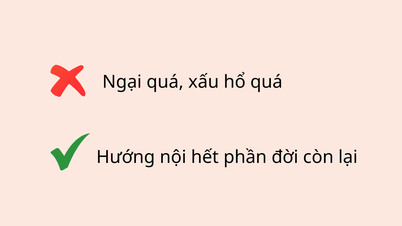According to exclusive data from recruitment platform Simplify shared with Fortune , in May 2025, a job seeker submitted an average of 45 resumes per month – double the 22 resumes a year earlier. For those with a master’s degree, that number ranged from 32 to 60 resumes per month, while bachelor’s graduates submitted between 15 and 38 resumes.
Even in an industry that once "guaranteed" a six-figure salary (equivalent to hundreds of millions per month) like Computer Science , candidates still have to send out 22-51 applications per month. This is not difficult to understand when the number of programmers has dropped to its lowest level since 1980. Meta CEO Mark Zuckerberg frankly said that artificial intelligence (AI) can now take over the work of mid-level programming engineers, making humans compete not only with each other but also with machines.
"Ghost work" makes candidates angry
Not only is competition fierce, candidates also face "ghost jobs" - positions posted that don't actually exist or are already filled. MyPerfectResume 's 2024 report found that 81% of employers admitted to posting "ghost jobs" to maintain their image on the recruitment platform, test job descriptions, or build a "human resources bank" for the future.
As a result, many candidates send hundreds, even thousands of applications but still… have no response. Others are "baited" - flattered and praised in the recruitment interview but in the end receive low salaries and inappropriate titles.

Gen Z loses faith in degrees
This pressure is especially heavy for Gen Z. Data from the Federal Reserve Bank of St. Louis (USA) shows that in the first half of 2025, the unemployment rate for Gen Z with a master's degree or higher reached 5.8%, up from 3% in the same period last year and higher than the national average of 4.1%.
“It’s getting harder for millennials to break into the job market, especially during a time of economic uncertainty and AI disrupting many industries,” said Priya Rathod, career expert at Indeed . “Even advanced degrees are no guarantee.”
The situation is so worrying that 58% of graduates within the past year have not yet found their first job, according to Kickresume . Indeed's 2025 survey found that more than a third of graduates believe their degree is a "waste of money".
Gen Z – despite making up only 5% of the workforce – is disproportionately unemployed, contributing to the high national unemployment rate. More than half (51%) of Gen Z regret going to college, compared to 41% of Millennials (those born between 1981 and 1996) and 20% of their grandparents’ generation (1946 and 1964).
Higher education, higher debt and the income gap
Higher education is an expensive investment: The average cost of a master’s degree in the US in 2024 is $62,820, according to the Education Data Initiative . Meanwhile, total student loan debt in the US has reached $1.6 trillion.
Indeed's survey found that 43% of workers have turned down a job because the salary wasn't enough to pay off student loans; the same percentage gave up pursuing a career because of debt.
Return on investment (ROI) also varies significantly between disciplines: A Master of Science in Biology & Biomedical Sciences at Ohio State University yields an estimated lifetime earnings value of $7.3 million, while a Master of Divinity at a school in New York is only about $1.65 million.
Education experts recommend that before deciding to study for a master's degree, students need to clearly define their goals - to improve their expertise, change their field of study or serve research. In addition, students need to carefully research the reputation and quality of the program, especially with international joint courses; compare costs and benefits, from tuition fees to job opportunities and expected income. Consulting people in the industry or former students also helps to provide a more realistic view. These steps will help young people avoid falling into the "master's degree trap", while optimizing the value of the degree, ensuring that time and money are invested appropriately.
Source: https://vietnamnet.vn/thac-si-gui-60-ho-so-mot-thang-van-that-nghiep-bang-dai-hoc-con-gia-tri-2430926.html



































![[Photo] Keep your warehouse safe in all situations](https://vphoto.vietnam.vn/thumb/1200x675/vietnam/resource/IMAGE/2025/10/1/3eb4eceafe68497989865e7faa4e4d0e)





























































Comment (0)